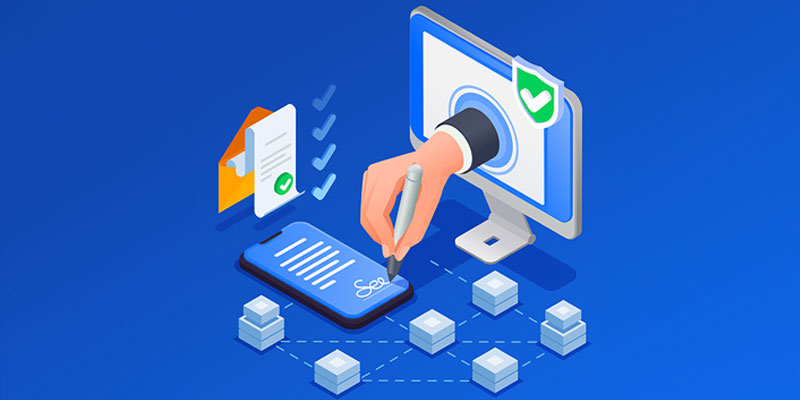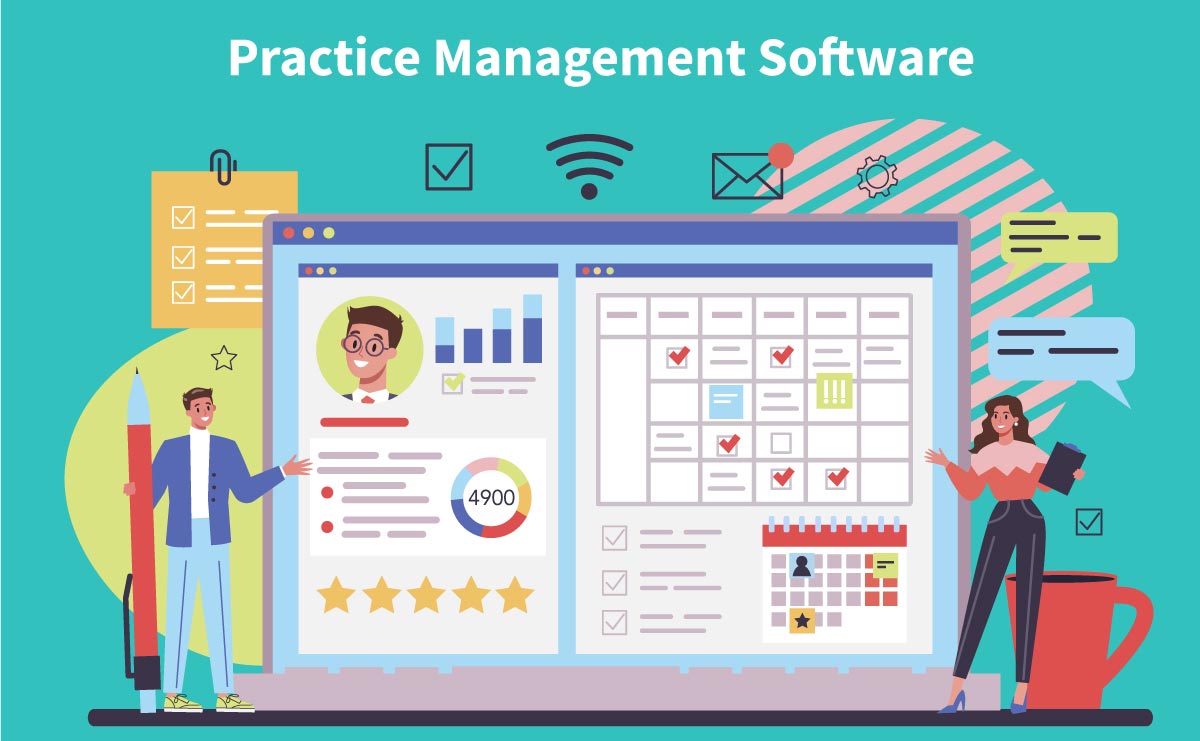Contents
What to Expect from Practice Management Software in a Law Office
When implementing practice management software in your law office, you can expect a variety of features and benefits that will streamline your operations and boost overall efficiency. Here is a breakdown of what you can look forward to:
What Is a Practice Management System?
A Practice Management System is a software solution designed to help law firms and legal professionals manage their day-to-day operations more efficiently. The practice management software features include time tracking, document storage, and automated billing, all designed to streamline law firm operations and improve overall efficiency. Popular practice management software examples include RunSensible, Clio, and CosmoLex, all of which offer tools for case management, billing, and client communication to streamline law firm operations.
Centralized Client and Case Management
All client information, including contact details, case history, and communications, is stored in one centralized location, allowing easy access and efficient management. The software also organizes documents, contracts, and legal forms in a structured and easily searchable format, significantly reducing the time spent on manual filing. It enables the tracking of deadlines, court dates, appointments, and other critical tasks, ensuring that important dates are never missed, and everything stays on schedule.
Client Intake and Lead Management
Client intake and lead management systems offer law firms a comprehensive solution to streamline and optimize the intake process. By automating the tracking of leads and capturing essential client information from the first point of contact, these systems allow firms to manage potential cases and clients efficiently. The automation minimizes manual data entry and the risk of human error, ensuring that every lead is followed up promptly and that no opportunities slip through the cracks.
Using lead management tools also helps law firms’ segment and prioritize leads based on criteria like case type, urgency, or potential value. This enables firms to focus on high-value opportunities while still maintaining communication with other prospective clients. With real-time notifications and reminders, teams can stay on top of every step in the intake process, from the initial consultation to onboarding. The result is an enhanced client experience, as the streamlined process reduces delays and improves communication. A robust client intake and lead management system ultimately lead to increased conversions and long-term growth for the firm.

Document Automation Management
Document automation management is a powerful tool for law firms that streamlines legal document creation, organization, and management. By automating repetitive and time-consuming tasks, such as drafting contracts, agreements, and pleadings, document automation allows legal professionals to focus on higher-value work, improving overall efficiency and productivity.
Document automation can create templates for frequently used legal documents, ensuring consistency and accuracy across all files. These templates can be customized with client-specific information through simple data entry or integration with client management software, reducing the need for manual input and the likelihood of errors. It also allows for faster turnaround times, as documents that once took hours to draft can be completed in a fraction of the time.
Beyond speeding up the drafting process, document automation management systems enable firms to store and organize their documents centrally. This improves access to important files and ensures that the latest versions of documents are always available to the team. Many systems also include tracking features, enabling legal teams to monitor changes, control version history, and ensure that all documents comply with firm and regulatory standards.
Furthermore, document automation reduces the risk of human error, which is critical in legal practice where precision is essential. It results in higher-quality output, increased compliance, and enhanced client satisfaction.
Workflow Automation
Workflow automation streamlines a law firm’s internal processes by automating routine, repetitive tasks such as document drafting, client intake, billing, and case management. By setting up standardized templates and workflows, firms can ensure that tasks are performed consistently, efficiently, and error-free, significantly reducing the need for manual intervention and oversight.
One key benefit of workflow automation is the relief it provides from mundane tasks. Automation allows legal professionals to quickly generate tailored documents from pre-built templates by simply inputting client-specific details for tasks like document drafting or contract generation. This eliminates the need for drafting documents from scratch, reducing the amount of time spent on routine administrative tasks and freeing up attorneys to focus on more complex, billable work.
Alongside time savings, workflow automation enhances accuracy, providing peace of mind. With automated processes, each task follows a predefined path, ensuring that every step is completed correctly and consistently. This is especially important for tasks that involve compliance with legal standards or regulatory requirements, where mistakes can lead to costly consequences.
Automation also helps in task delegation and management. Many workflow automation tools allow legal teams to track the progress of cases, assign tasks to specific team members, and set deadlines to ensure nothing falls through the cracks. Hence, it improves accountability and transparency within the firm, as managers can easily oversee workflows and make adjustments when needed. Automated reminders and notifications ensure deadlines are met and essential tasks are not delayed.
Improved Collaboration and Communication
Implementing practice management software in a law firm enhances collaboration and communication by centralizing case-related information. As a result, lawyers, paralegals, and administrative staff can collaborate seamlessly without the risk of miscommunication or data loss. Real-time updates, document sharing, and task assignments ensure that all team members work with the most current information, reducing errors and improving efficiency. Built-in messaging and notifications enable instant communication, even for remote work, while secure client portals allow clients to access documents quickly and case updates, boosting transparency and trust.
Time Tracking and Reporting
Time tracking and reporting features in practice management softwares are essential tools for optimizing a law firm’s financial and operational aspects. The integrated timers track billable hours more accurately and allow for easy categorization of time spent on various tasks, such as client meetings, research, or court appearances. This precision in timekeeping ensures that attorneys capture all billable activities, reducing the risk of lost revenue and providing clients with a transparent breakdown of services.
Beyond time tracking, the software’s reporting functionality offers detailed insights into various aspects of the firm’s performance. Customizable reports can track case progress, financial health, productivity metrics, and client satisfaction. These reports help attorneys and management teams identify inefficiencies, such as bottlenecks in case workflows or underperforming tasks, allowing for more strategic resource allocation. Financial reports also assist in monitoring cash flow, profitability, and outstanding invoices, ensuring the firm maintains a healthy financial position. The ability to generate data-driven reports supports informed decision-making and empowers law firms to improve their overall performance and client service.
Compliance and Security Features
Compliance and security features in practice management softwares are designed to ensure that law firms protect sensitive client information and meet the strict regulatory standards governing the legal industry. In addition to data encryption and two-factor authentication, many platforms offer role-based access controls, allowing firms to define who can access specific case files or client data. This ensures that only authorized personnel can view or modify sensitive information, reducing the risk of internal breaches.
Furthermore, audit trails are an essential security component, providing a detailed log of all actions taken within the system. This feature helps track document changes, case updates, and user activity, offering a layer of accountability and transparency crucial for internal audits and regulatory reviews.
On the compliance side, the software is often equipped to manage trust accounting, particularly for handling IOLTA accounts. It ensures that client funds are kept separate from operating accounts in accordance with legal and ethical standards. The software also helps firms adhere to data protection laws, such as GDPR, HIPAA, or CCPA, depending on the jurisdiction, by managing document retention, consent, and data privacy protocols.
Integration with Other Tools
Practice management software makes your life easier by seamlessly connecting with the tools you already use, boosting efficiency and simplifying workflows. When integrated with email and calendar apps like Outlook or Gmail, your communications, appointments, and deadlines are automatically synced, helping you stay organized without extra effort. It also connects with legal research tools and accounting software, making it easier to manage billing and streamline your research process. This smooth integration across platforms helps you and your team work smarter, stay on top of tasks, and collaborate more effectively, keeping everything in sync and running smoothly.
Scalability and Flexibility
In addition to accommodating the growing needs of a law firm, practice management software offers flexibility in customizing features to suit your specific practice areas and workflows. Whether expanding your team, taking on more complex cases, or increasing your client base, the software adapts seamlessly, allowing you to scale without disruptions. It can easily support multiple locations, practice areas, and departments, making it ideal for firms of any size. With cloud-based options, you can access the platform from anywhere, offering even greater flexibility for remote work or on-the-go case management. Moreover, integrating new tools and modules as your firm evolves ensures the software grows with your business, providing long-term support without significant system overhauls.
Enhanced Client Experience
Implementing practice management software can greatly improve the client experience by fostering more transparency and engagement. With dedicated client portals, clients can easily access real-time updates, review important documents, and track their bills—giving them a clear view of what is happening with their case. This not only boosts client satisfaction by keeping them informed but also reduces the need for constant check-ins, freeing up your team to focus on casework.
The software’s transparent billing features also help clients receive clear, detailed invoices, often accompanied by automated reminders that make paying easier and faster. This reduces confusion around fees and minimizes payment delays or disputes, leading to smoother transactions and stronger client relationships. In the end, practice management system streamlines your operations and saves time, creating a better experience for both your firm and your clients.
Conflict Checking
Conflict-checking systems provide law firms with an essential layer of protection against ethical breaches by automating identifying conflicts of interest before onboarding new clients or taking on cases. These systems perform thorough searches across the firm’s database of existing clients, matters, and key relationships, quickly identifying potential conflicts between current or former clients and new cases.
By automating this process, law firms significantly reduce the risk of missing crucial information that could lead to an ethical violation, such as representing clients with opposing interests in related legal matters. Conflict-checking tools flag issues early, allowing the firm to investigate, address, or resolve conflicts proactively—whether through obtaining waivers or deciding not to take on the case. This preemptive approach helps safeguard the firm’s reputation, maintain client trust, and ensure compliance with legal and ethical standards.
Legal Templates and Forms
Legal templates and forms provide a valuable resource for law firms by offering preloaded, standardized documents that address various legal needs, such as contracts, agreements, motions, and pleadings. These templates align with legal best practices, ensuring they are comprehensive and compliant with relevant laws and regulations. By using these templates, legal professionals can significantly reduce the time spent drafting documents, as they need to input client-specific information, speeding up preparation and enhancing efficiency. Templates also minimize the risk of drafting errors, ensuring that essential clauses and structures are consistently included. Additionally, legal templates play a key role in maintaining compliance with legal standards, as they are typically vetted for accuracy and tailored to meet jurisdiction-specific requirements, making them an indispensable tool for law firms operating across various regions.

E-Signature Integration
E-signature integration streamlines the process of signing legal documents by enabling clients and legal professionals to sign electronically, eliminating the need for in-person meetings and speeding up turnaround times. This integration provides a secure and legally binding way to sign documents from any device, enhancing client convenience and efficiency. It also automatically stores signed documents, reducing the risk of lost paperwork and maintaining an organized record. Ultimately, e-signature integration accelerates the legal process, improves client satisfaction, and helps law firms stay competitive digitally.
Client Portal
The client portal is a secure, web-based platform designed to improve the client experience by providing accessible, round-the-clock access to case information, updates, and document sharing. It allows clients to log in at their convenience to review the status of their case, access essential documents, and communicate with their legal team. This eliminates the need for constant phone calls or emails for routine updates, providing clients with a real-time, transparent view of their case progress.
One of the primary benefits of a client portal is enhanced communication. Clients can send messages, ask questions, or submit documents through the portal, ensuring a smooth flow of communication between the legal team and the client. It saves time and ensures that all communications are securely documented and easily accessible.
Cloud-Based Accessibility
Cloud-based accessibility allows law firms to securely access their case files, documents, and practice management tools from any location with an internet connection. This technology removes the limitations of physical office spaces, allowing attorneys, paralegals, and support staff to work remotely and manage cases seamlessly, whether in the office, at home, or on the go. By hosting data in the cloud, all team members can access the most up-to-date information in real-time, ensuring that everyone is aligned and can collaborate effectively regardless of their physical location.
One of the most significant benefits of cloud-based accessibility is its flexibility. As hybrid work models become more common in the legal industry, accessing files and managing workloads remotely is essential for maintaining productivity. Whether attorneys travel for court appearances, work from home, or consult with clients outside of the office, cloud-based systems ensure they can still retrieve important case files, draft documents, and communicate with clients without delays. This flexibility also enables firms to accommodate better their staff’s work-life balance by supporting remote and flexible work arrangements.
Overall, with cloud-based accessibility, the practice management software features allow attorneys to access case files, client information, and scheduling tools from any device, improving flexibility and responsiveness.
Integration with Court E-Filing Systems
Integration with court e-filing systems allows law firms to streamline the submission of legal documents by enabling direct filing from their practice management software into electronic court filing (e-filing) systems. This seamless integration simplifies the filing process, ensuring that documents are submitted accurately and on time without manual uploads or navigating multiple platforms. By automating this process, firms significantly reduce the administrative burden of managing court documents, such as printing, scanning, and physically delivering filings. It also minimizes the risk of errors, such as missed deadlines or incomplete filings, as the system can provide automated alerts and reminders for upcoming submission deadlines. Additionally, e-filing integration offers instant confirmation of submissions, allowing lawyers to track the status of their filings in real-time, further enhancing efficiency and ensuring compliance with court procedures. Ultimately, this integration helps law firms save time, increase accuracy, and maintain a smoother workflow when handling court-related documentation.
Practice Area-Specific Tools
Practice area-specific tools offer law firms specialized features and templates tailored to the unique demands of various legal disciplines, such as litigation, real estate, family law, or personal injury. These tools are designed to streamline the specific workflows associated with each practice area, providing attorneys with customized resources like pre-built forms, document templates, checklists, and automated workflows relevant to their specialty. For instance, the software might include tools for managing medical records and calculating damages in personal injury law. At the same time, real estate could offer features for handling property contracts and closings. This specialization saves time by reducing the need to create documents from scratch and ensures that the firm complies with practice-specific regulations and standards. By automating routine tasks and organizing case management around the specific needs of each legal specialty, these tools increase overall efficiency, allowing legal professionals to focus more on strategy and client service. Tailored solutions also reduce the risk of errors, ensuring a smoother, more organized process from intake to resolution, making them indispensable for firms looking to optimize their practice areas.
Why Implementing RunSensible Practice Management Software in Your Law Firm
When implementing practice management software like RunSensible in your law office, you can expect a comprehensive solution that centralizes client management, automates document workflows, and improves overall efficiency. RunSensible offers robust tools for client intake, lead tracking, and case management, allowing law firms to organize and access critical information in real time. Its features, such as automated document creation and integrated billing, not only streamline routine tasks but also save valuable time, while cloud-based accessibility enables remote work and seamless collaboration. By leveraging RunSensible’s customizable workflows and specialized tools, your firm can enhance productivity, ensure compliance, and provide a better client experience while easily scaling.
Final Thoughts
Implementing practice management system in your law firm can significantly enhance efficiency, collaboration, and client satisfaction. The software streamlines daily operations while minimizing errors and administrative burdens by centralizing essential functions such as client and case management, document automation, workflow optimization, and compliance. Features like time tracking, reporting, and cloud-based accessibility further improve your ability to manage cases, boost productivity, and make data-driven decisions. Whether a small firm or an extensive practice, this software can adapt to your evolving needs, offering scalability and specialized tools for various legal disciplines. Ultimately, practice management software empowers your firm to provide exceptional service, meet compliance standards, and stay competitive in a dynamic legal environment. Attorneys can benefit from practice management software examples like RunSensible, Clio, and CosmoLex which integrate time tracking, invoicing, and client management into one platform.
Disclaimer: The content provided on this blog is for informational purposes only and does not constitute legal, financial, or professional advice.







